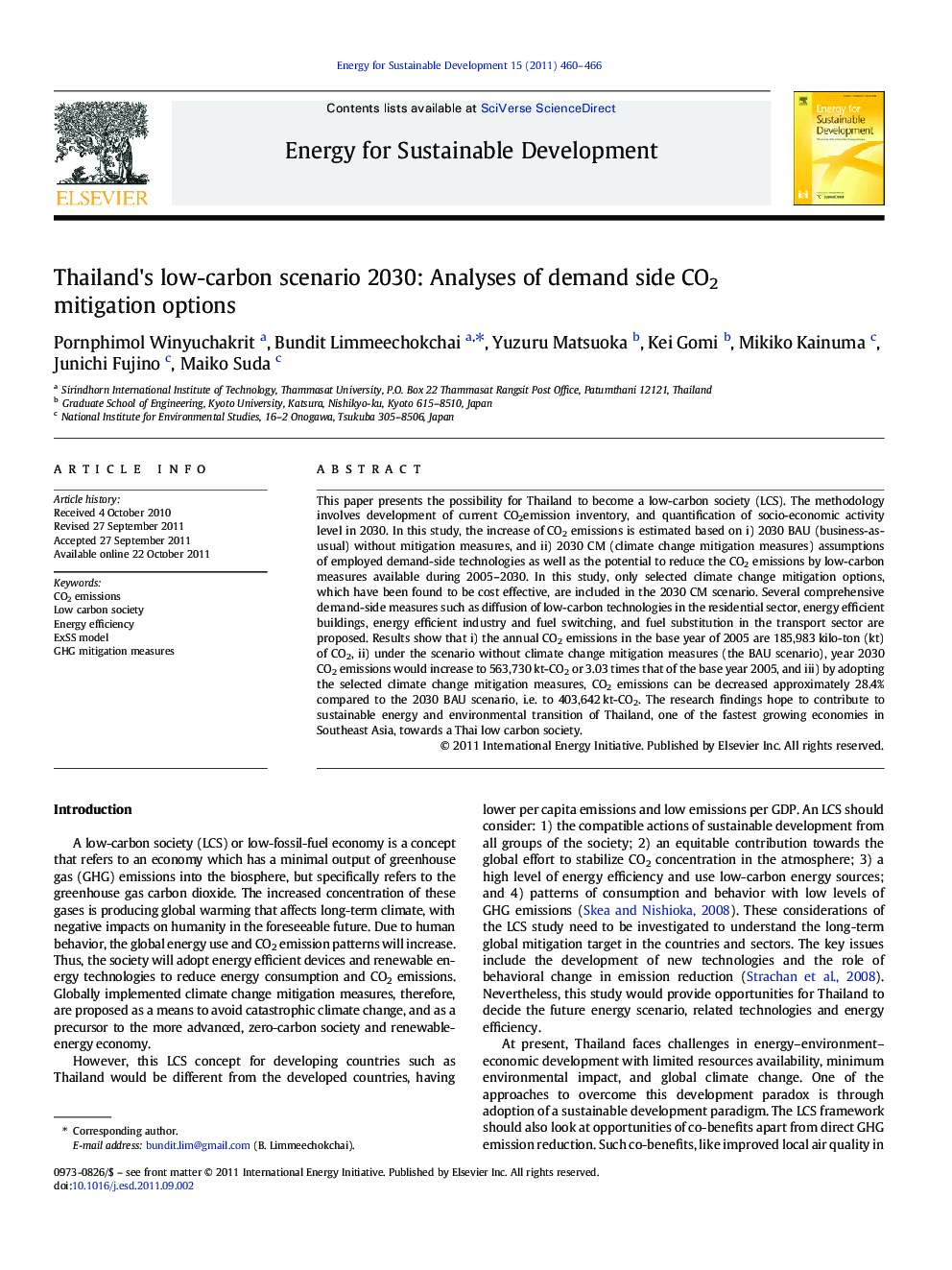| کد مقاله | کد نشریه | سال انتشار | مقاله انگلیسی | نسخه تمام متن |
|---|---|---|---|---|
| 1047026 | 945182 | 2011 | 7 صفحه PDF | دانلود رایگان |

This paper presents the possibility for Thailand to become a low-carbon society (LCS). The methodology involves development of current CO2emission inventory, and quantification of socio-economic activity level in 2030. In this study, the increase of CO2 emissions is estimated based on i) 2030 BAU (business-as-usual) without mitigation measures, and ii) 2030 CM (climate change mitigation measures) assumptions of employed demand-side technologies as well as the potential to reduce the CO2 emissions by low-carbon measures available during 2005–2030. In this study, only selected climate change mitigation options, which have been found to be cost effective, are included in the 2030 CM scenario. Several comprehensive demand-side measures such as diffusion of low-carbon technologies in the residential sector, energy efficient buildings, energy efficient industry and fuel switching, and fuel substitution in the transport sector are proposed. Results show that i) the annual CO2 emissions in the base year of 2005 are 185,983 kilo-ton (kt) of CO2, ii) under the scenario without climate change mitigation measures (the BAU scenario), year 2030 CO2 emissions would increase to 563,730 kt-CO2 or 3.03 times that of the base year 2005, and iii) by adopting the selected climate change mitigation measures, CO2 emissions can be decreased approximately 28.4% compared to the 2030 BAU scenario, i.e. to 403,642 kt-CO2. The research findings hope to contribute to sustainable energy and environmental transition of Thailand, one of the fastest growing economies in Southeast Asia, towards a Thai low carbon society.
► LCS framework is aimed at communication on climate change responses.
► Selected cost-effective energy efficiency measures could decrease CO2 emissions.
► These measures were introduced to the building, industrial, and transport sectors.
► Results show CO2 mitigation of 28.4% in 2030 when compared to the BAU scenario.
Journal: Energy for Sustainable Development - Volume 15, Issue 4, December 2011, Pages 460–466